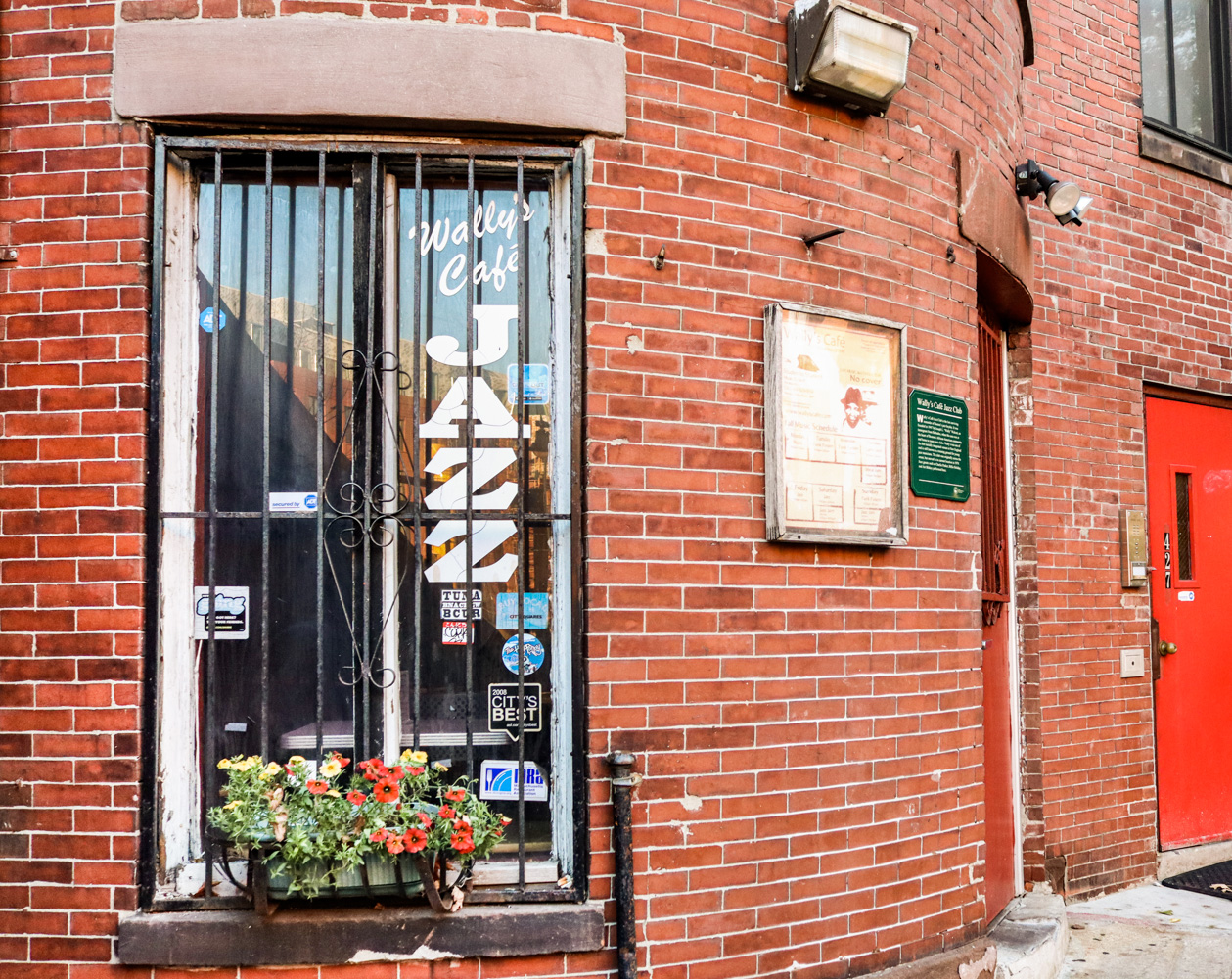
Wally’s Cafe Jazz Club, located along Massachusetts Avenue, has served as a cultural and musical hotspot for generations, welcoming musicians and audience members of all ages and backgrounds.
Founded in 1947 by Joseph Walcott and still family-owned, Wally’s reopened for the first time since the COVID-19 pandemic on Sept. 8.
Before Wally’s shut down, co-leads pianist Kevin Harris and saxophonist Noah Preminger played with their band, Sphere 427, every Friday and Saturday night. Harris said Wally’s upholds the tradition and creativity of African American music while incorporating contemporary jazz sounds.
“The shutdown was an interruption of all of that on a tangible level … but at the same time, that spirit and stick-to-itiveness and creativity did not,” Harris said.
Gaby Cotter has been a Latin jazz singer at Wally’s since 2016. She said Wally’s closing was difficult for the owners, musicians and community members.
“During the pandemic, they got support from the community,” Cotter said, “They reopened the place all renovated … it’s still like a very small magic place.”
Although the venue itself underwent changes, manager Frank Poindexter said Wally’s is back to what it was before — three bands each night, seven days a week.
“We’re dedicated to my grandfather’s legacy,” Poindexter said. “We’re also dedicated to providing a forum for musicians to perform and perfect their craft.”
Bonnie Johnson, producer and host of 90.5 WICN radio show Colors of Jazz, said the venue is unique because it creates an intimacy around the experience of live music.
Preminger, the co-lead of Sphere 427, said college students come to Wally’s to learn from older, professional performers, not only musically, but by hanging out and talking to each other.
“It’s the only music venue for jazz where people actually hang out in Boston,” he said.
Johnson said the legacy of jazz music is important because it is an African American art form that lives on through generations and creates a musical foundation of creativity and improvisation.
“Wally’s is like an incubator, so the fact that younger players can come in and play and then be heard by their peers, this to me, is an inspiration for what the future holds for jazz,” she said.
Preminger said the rising popularity of streaming platforms takes revenue away from musicians, especially musicians who practice less mainstream styles of music like jazz.
“For a form of art that is, bluntly, unpopular, to have music venues that support it is crucial, or you wouldn’t hear it. It would be left to the consumer to just seek it out on the internet,” Preminger said. “It’s important to support Black owned businesses, it’s important to support jazz and it’s important to pay for music.”
After its re-opening, Poindexter said Wally’s is incorporating its own livestream that will allow more people to experience jazz without worrying about the possibility of contracting COVID-19.
“Wally’s is an incredible resource for the jazz community and beyond … it’s both a training ground for young musicians … and it’s kind of a throwback,” president of JazzBoston Ken Field said.
Nonprofit organizations like JazzBoston advocate for the jazz community in Boston, shining a light on the African American heritage of jazz and the importance of cross-cultural collaboration in music.
Field said the improvisational nature of jazz creates a shared experience that connects people through interpersonal situations when creating new music and sounds together.
“Jazz is important as a creative art form for several reasons, one of them being the African American heritage of jazz music,” Field said. “It’s an art form that developed out of the African American community.”
He said jazz also allows musicians to “collaborate across cultures,” as jazz draws on other influences like Latin American music.
“The Latinx community and people who are willing to do jazz or Latin jazz, or African jazz … they are so open to give you a space to perform,” Cotter said. “Places like Wally’s are so important in the community because they allow you to do all this together and also you grow your musicianship.”
Johnson also said that a younger audience will keep the spirit of jazz alive by supporting live music.
“There is a perception that jazz has an older audience and I disagree,” she said. “I believe that this is an urban legend … Younger folks come in because they eat up new music.”
Johnson added places like Wally’s also raise the voices of women in jazz and the cultural spirit and legacy of jazz music.
Cotter said she went to Wally’s as a student and finds the club to be a great place to experiment.
“It doesn’t matter how hard your week was or how much homework you’ve got to do … [after going to Wally’s] you feel alive again,” she said.





















































































































